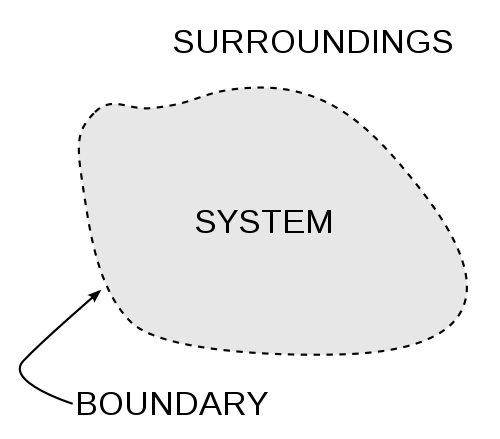System Thinking
What is a system? I am sure there were many who asked this question during Professor Laksono’s lecture.
A system is a set of interacting or interdependent system components an integrated whole, or “whole compounded of several parts of members, system”, literary “composition”.
The concept of an “integrated whole” can also be state as a system embodying a set of relationships which are differentiated from relationships of the set to other elements, and from relationships between an element of the set and elements not a part of the relational regime. The scientific research field which is engaged in the study of the general properties of systems include systems theory, cybernetics, dynamical systems, thermodynamics and complex systems. They investigate the abstract properties of the matter and organization, searching concepts and principles which are independent of the specific domain, substance, type, or temporal scales of existence.
Most systems share common characteristics, including:
· Systems have structure, defined by components and their composition;
· Systems have behaviour, which involves inputs, processing and outputs of material, energy, information, or data;
· Systems have interconnectivity: the various parts of a system have functional as well as structural relationships between each other.
· Systems have by themselves functions or groups of functions.
In this post, I would like to share some concepts on system. There are 7 concepts about system and each describing different ideas and concepts about the function and view of the system.
Environment and Boundaries
Systems theory views the world as a complex system of interconnected parts. We scope a system by defining its boundary; this means choosing which entities are inside the system and which are outside - part of the environment. We then make simplified representations (models) of the system in order to understand it and to predict or impact its future behaviour. These models may define the structure and/or the behaviour of the system.
Natural and Man-made systems
Natural systems may not have an apparent objective but their outputs can be interpreted as purposes. As for man-made systems, it is made or designed with purposes that are achieved by the delivery of outputs. Their components must be related; they must be designed to work as a coherent entity or else they would be two or more distinct systems
Theoretical Framework
An open system exchanges matter and energy with its surroundings. Most systems are open systems; like a car, coffeemaker, or computer. A closed system exchanges energy, but not matter, with its environment; like Earth or the project Biosphere2 or 3. An isolated system exchanges neither matter nor energy with its environment; a theoretical example of which would be the universe.
Process and Transformation process
A system can also be viewed as a bounded transformation process, that is, a process or collection of processes that transforms inputs into outputs. Inputs are consumed; outputs are produced. The concept of input and output here is very broad. E.g., an output of a passenger ship is the movement of people from departure to destination.
Subsystem
A subsystem is a set of elements, which is a system itself, and a component of a larger system.
System Model
A system comprises multiple views such as planning, requirement, design, implementation, deployment, operational, structure, behaviour, input data, and output data views. A system model is required to describe and represent all these multiple views.
System Architecture
A system architecture, using one single coalescence model for the description of multiple views such as planning, requirement, design, implementation, deployment, operational, structure, behaviour, input data, and output data views, is a kind of system model.
Lastly, I would like to say that systems are everywhere and their application in human lives has played a significant role in the development and evolution of science as well as other areas like engineering and physics, social and cognitive sciences, management research, economics, strategic thinking, information and computer sciences and many other more. Therefore it is very important for us to understand systems and how we can apply its concept and theories into our daily lives or more importantly in the area of sciences and medical field.
References:
1. Wikipedia (keyword:system, systems theory)
2. Block 4.2 lecture notes

No comments:
Post a Comment